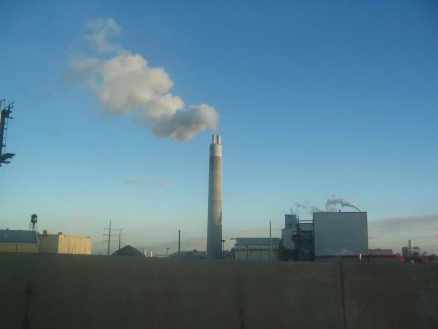Polluter pays principle
Contents
Introduction Source: EPA (Polluter pays principle)
The Polluter Pays Principle (PPP) is an environmental policy principle which requires that the costs of pollution be borne by those who cause it. In its original emergence the Polluter Pays Principle aims at determining how the costs of pollution prevention and control must be allocated: the polluter must pay.
Its immediate goal is that of internalizing the environmental externalities of economic activities, so that the prices of goods and services fully reflect the costs of production. Bugge (1996) has identified four versions of the PPP: economically, it promotes efficiency; legally, it promotes justice; it promotes harmonization of international environmental policies; it defines how to allocate costs within a State.
The normative scope of the PPP has evolved over time to include also accidental pollution prevention, control and clean-up costs, in what is referred to as extended Polluter Pays Principle.
Today the Principle is a generally recognized principle of International Environmental Law, and it is a fundamental principle of environmental policy of both the Organisation for Economic Co-operation and Development (OECD) and the European Community.
History
The first mention of the Principle at the international level is to be found in the 1972 Recommendation by the OECD Council on Guiding Principles concerning International Economic Aspects of Environmental Policies, where it stated that: "The principle to be used for allocating costs of pollution prevention and control measures to encourage rational use of scarce environmental resources and to avoid distortions in international trade and investment is the so-called Polluter-Pays Principle." It then went on to elaborate: "This principle means that the polluter should bear the expenses of carrying out the above-mentioned measures decided by public authorities to ensure that the environment is in an acceptable state."
The OECD emphasizes the necessity for removal of subsidies which would prevent polluters to bear the costs of pollution which they caused, urging then those costs be internalized into the prices of goods and services: the PPP should "... not be accompanied by subsidies that would create significant distortions in international trade and investment." This is normally referred to as weak or standard PPP.
However, the PPP evolved into what is called extended or strong PPP. In 1989 OECD included in the PPP costs related to accidental pollution; the Recommendation of the Council concerning the Application of the Polluter-Pays Principle to Accidental Pollution states that: "In matters of accidental pollution risks, the Polluter-Pays Principle implies that the operator of a hazardous installation should bear the cost of reasonable measures to prevent and control accidental pollution from that installation [...]".
The PPP has also been reaffirmed in the 1992 Rio Declaration, at Principle 16: "National authorities should endeavor to promote the internalization of environmental costs and the use of economic instruments, taking into account the approach that the polluter should, in principle, bear the cost of pollution, with due regard to the public interest and without distorting international trade and investment.", and is mentioned, recalled or otherwise referred to in both Agenda 21 and the World Summit on Sustainable Development (WSSD) Johannesburg Plan of Implementation.
The PPP is today one of the fundamental principles of the environmental policy of European Community. The Treaty Establishing the European Community, under Title XIX Environment, provides at article 174.2 that: "Community policy on the environment [...] shall be based on the precautionary principle and on the principles that preventive action should be taken, that environmental damage should as a priority be rectified at source and that the polluter should pay."
The PPP is widely acknowledged as a general principle of International Environmental Law, and it is explicitly mentioned or implicitly referred to in a number of Multilateral Environmental Agreements.
Application
The PPP is normally implemented through two different policy approaches: command-and-control and market-based. Command-and-control approaches include performance and technology standards. Market-based instruments include pollution taxes, tradable pollution permits and product labeling. The elimination of subsidies is also an important part of the application of the PPP.
At the international level the Kyoto Protocol is an example of application of the PPP: parties that have obligations to reduce their greenhouse gas emissions must bear the costs of reducing (prevention and control) such polluting emissions.
Further Reading
- Bugge H. C., 1996. "The principles of polluter pays in economics and law", in Eide E. and van der Bergh R. (eds) "Law and Economics of the Environment", Oslo: Juridisk Forlag, 1996.
- OECD, 1972. Recommendation of the council on guiding principles concerning international economic aspects of environmental policies. May. Council Document no. C(72)128. Paris: Organization of Economic Cooperation and Development.
- OECD, 1989. Recommendation of the Council concerning the Application of the Polluter-Pays Principle to Accidental Pollution C(89)88. Paris: Organization of Economic Cooperation and Development.
